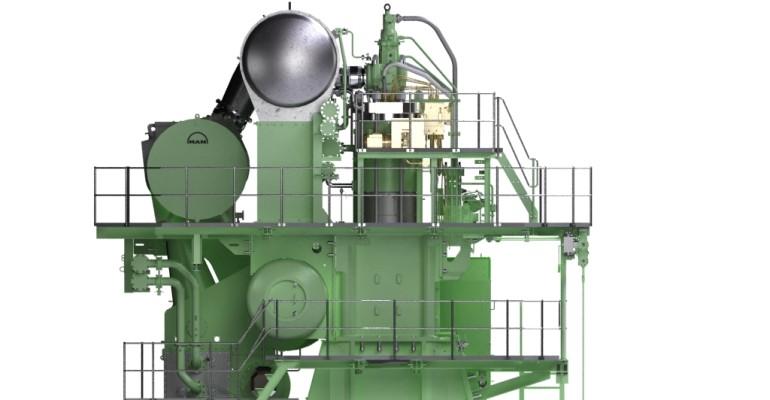The 50-bore MAN B&W two-stroke engine was tested at Mitsui’s Tamano facility with one of the four cylinders of the gas injection engine running on hydrogen delivered by Mitsui’s hydrogen gas supply system.
Head of research and development at MAN Energy Solutions Brian Østergaard Sørensen said the test was illuminating and provided much fuel for thought for the company.
Mitsui reported stable operation in a range of operational conditions up to 100% load and greenhouse gas emissions reduction of 95%.
Mitsui said: “This is the world's first successful hydrogen combustion test on a large, marine two-stroke engine. In achieving operation along with providing the hydrogen gas-supply system, we are now one step closer to developing a zero-emission ship that uses hydrogen as fuel.”
The burning of hydrogen emits no greenhouse gases; the remaining emissions of the Mitsui hydrogen test were due to the pilot fuel used.
Gunnar Stiesch, Chief Technical Officer, MAN Energy Solutions, said: “This is a very interesting project and one of several activities related to hydrogen that MAN Energy Solutions is currently pursuing within both two- and four-stroke segments. My congratulations to Mitsui for achieving this world-first and pushing the envelope on decarbonisation.”
Bjarne Foldager – Country Manager, Denmark – MAN Energy Solutions, said: “We have worked closely with MITSUI on this research project and are very happy with the results achieved. This proves the advantages and the flexibility of two-stroke engine technology, and means that we are now also prepared for the future, not only for hydrogen derivatives but also for hydrogen as a fuel.”
Copyright © 2024. All rights reserved. Seatrade, a trading name of Informa Markets (UK) Limited.
Add Seatrade Maritime News to your Google News feed.  |

